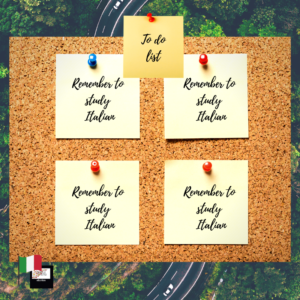Next three words
Discover Italian
Ok, then.
If you reach this page you probably are trying to study Italian and this is your second attempt. If not, read the previous article about the “C” sound with vowels A U O and I E.
First, recap
We said that the “C” sound can be hard when followed by A U O and soft when followed by I E.
What does it mean “soft” and “hard”?
Let’s discover what happened when C meets H.
We said before that the sound, when C meets the no/ sound letter H, is transforming C into an hard sound. The easy part is that, if we have memorised that CI CE have a soft sound, it will be easier to memorise that CHi CHe have a hard sound.
Chi?
So here we are with our new useful words. “Chi” in Italian means “who”
Who (is there)?
Chi (è)?
Usually this is the phrase we use when someone knock to our door. We noticed immediately our new friend “Chi”, but we’re probably asking ourselves what is that E with an accent.
È è
This one, dear reader, is one of the most common errors in Italian written language. And today, with T9 auto- correcting our writings, even more. “È” and “E” are almost the same when you listen to them the first time. To be a bit specific, in Italian we have two different “E”, one with the acute accent and one with the grave accent. Right now it’s all too complicated, so just remember when you’ll find “E” it will mean a conjunction and when you’ll find “È” it will mean “it is”.
Che (cosa è)?
What (is this)?
When you see something for the first time and you want to understand what it is, just ask. “Che” means “What” and it’s used (and abused) in Italian. For now, remember that its core meaning is “what” and we will find it really often.
Cosa
Here we are, to a new word. Cosa means literally “Thing”. It’s another used and abused word in Italian, so you will find in million different phrases. For what concern right now our lessons, it will mean only “thing”. Check it out, right now it will be easy for you to read the first “C” sound as hard, no?
The S sound
So let’s go a bit further with the sound “S”. This sound has so many rules to be read properly that it will discourage you. So I will give you a first important rule. When the sound “S” is doubled “SS” or at the beginning of a word as in “Sole” (Sun) it will have a hard sound as the sound “C” in English “Cinema” or “See”.
In practice…

So we saw CI CE as soft sounds and CA CO CU CHI CHE as hard sounds. We can add to this last rule the double CC. It will be strange for you this difference, but it will make sense when you’ll have to listen to a word and transcribe. The difference is between
Eco
And
Ecco
The first one it will have an hard sound, as we know, as per the sound “K” in English. The second one will have simply an even harder sound, stressing it a bit more. You will read the first one as “eKo” and the second one as “eKKo”. This rule it will lead us to the sound CCH that it will be the same KK sound. You will find CCH always with a vowel before and followed by a vowel.
Occhio
Secchio
Occhio will be read as oKKio and Secchio as seKKio. Note that the rule we read before it will help us to read properly “S” at the beginning of a word and followed by vowel as the sound “C” in cinema or “S” in see.
Let’s read
Let’s try to read this words loud guessing what is the pronunciation and then click for it
Next week we will see the last pronunciation of “C” sound and go a bit further. Stay tuned!